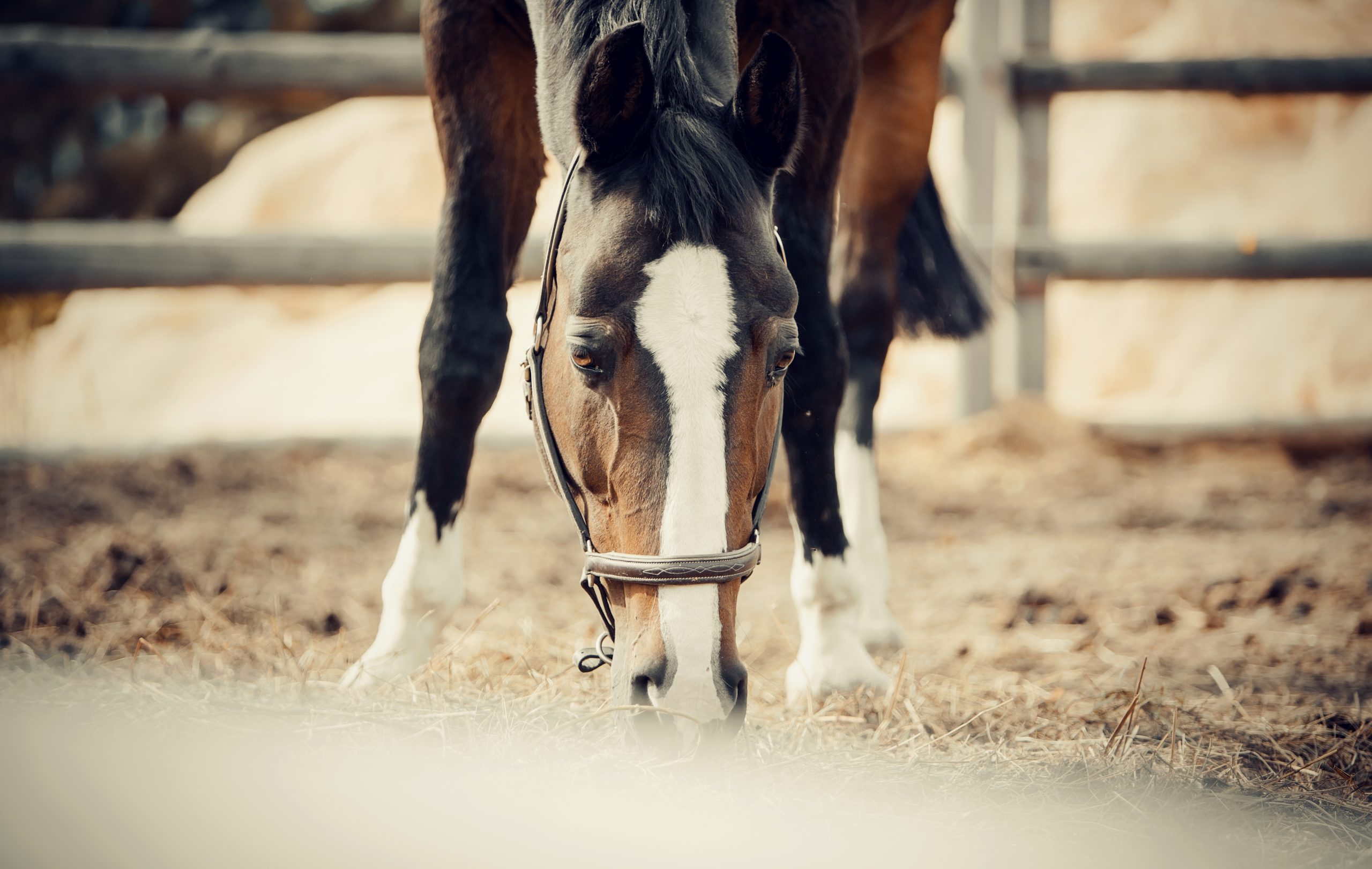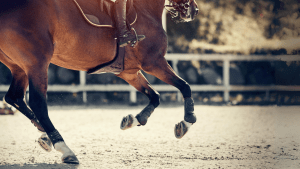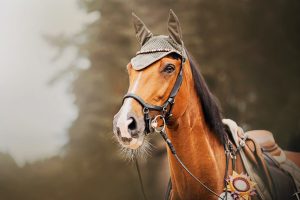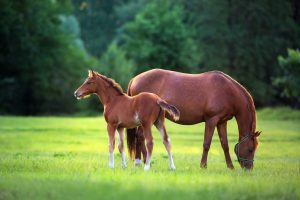Horses need optimal vitamin E levels in the blood to function properly. Vitamin E deficiency can lead to poor performance, weakness, myopathy and even ataxia in your horse. In severe cases, vitamin E deficiency can even lead to severe health problems resulting in fatal neurological diseases like Equine Motoneuron Disease (EMND).
What is vitamine E?
Vitamine E is a powerful antioxidant. It protects the body from oxidation and free radicals that damage your cells. Vitamine E keeps your organs and tissues healthy, young and strong. It slows tissue degeneration and keeps you younger and fitter. It optimizes cardiovascular and neuromuscular activity and is therefore of great importance in sport horses.
Fresh green grass is the best source of vitamine E. Therefore, a lack of vitamine E rarely occurs in summer in horses that graze all day. However, more and more horses do not have the opportunity to graze sufficiently (sport horses but also recreational horses that are stabled a lot or only have access to a paddock). In these horses we also see severe vitamine E-deficiencies even in summer.
Every horse owner should be aware that hay is poor in vitamin E. Once grass is harvested, the vitamin E levels decrease by more than 85%. This is why we see more vitamin E-deficiencies during the winter.
Risks associated with vitamin E deficiency.
Vitamin E promotes proper muscle and nerve function in horses and deficiency can lead to three potentially lethal diseases:
(1) Equine Neuroaxonal Dystrophy (ENAD).
(2) Equine Motor Neuron Disease (EMND).
(3) Vitamine E Deficient Myopathy (VEM)
Equine neuroaxonal dystrophy (ENAD) is a disease that affects mostly young horses. Scientists found that there exists a genetic predisposition in these horses that in combination with a deficiency in vitamin E results in a clinical expression of the disease.
Symptoms of this condition range from mild performance issues to severe ataxia.
Equine motor neuron disease (EMND) is most common in older horses with a vitamin E-deficiency of more than 18 months. Horses affected by this disease show clinical signs of weakness, muscle twitching, sweating and weight loss. They may lower their heads and lie down for extended periods of time. The cause is a lack of vitamin E and the prognosis is poor if the disease is not detected at an early stage.
Vitamin E Deficient Myopathy (VEM) is a disease that causes muscle weakness because of the malfunction of the muscles (myopathy). Insufficient vitamin E concentration in the body is the only cause of this muscle disorder. Immediate vitamin E administration usually results in full recovery within three months.
Prevention is of major importance.
Horses that do not have very regular access to pasture have a greatly increased risk of developing a vitamine E-deficiency. In these horses, it is recommended that an appropriate vitamine E-source be added to their daily rations.
If the horse is already showing any of the symptoms described above, contact your veterinarian immediately for a blood and clinical examination.
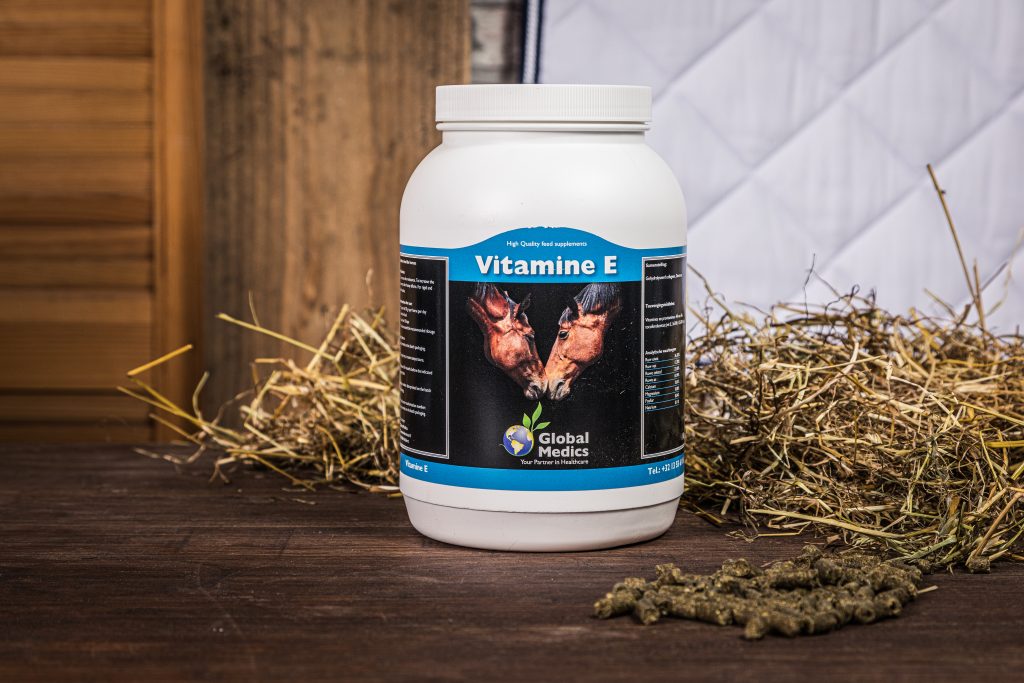
What is the best source of vitamin E for horses?
It is not easy, even impossible for a horse owner to decide which vitamine E source to use, in what dose and for what period of time. Do not hesitate to contact our nutritionists for specialized advice.

